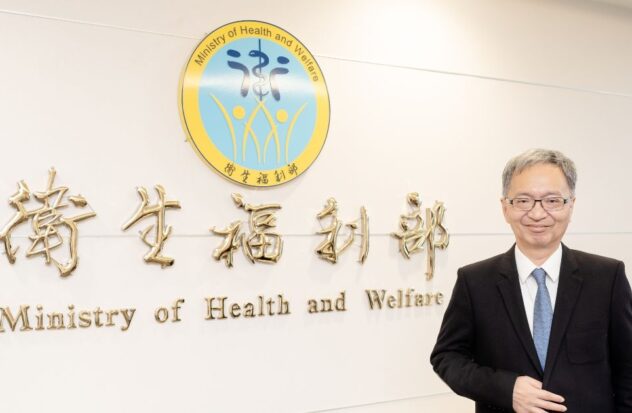BY: Dr. Hsueh Jui-yuan, Minister of Health and Welfare of the Republic of China (Taiwan)
The three-year Covid-19 pandemic resulted in terrible loss of life and exacerbated health inequalities. The global economy collapsed and people’s lives were affected around the world. This experience demonstrated that the current global health governance framework is not effective in responding to global health threats. Although covid-19 is no longer classified as a public health emergency of international concern (PHEIC) and global trade and economic activity have returned to normal, the World Health Organization (OMS) warns against the threat of a Disease X pandemic. It is therefore essential that countries around the world come together to strengthen health governance.
During the Covid-19 pandemic, the WHO and many countries began to review response strategies. Weaknesses were revealed in the International Health Regulations (2005) regarding the management of this crisis. As a result, changes are occurring. The proposed revisions include increased surveillance, reporting and information sharing; better preparation for response; and revised criteria for the declaration of PHEICs. At the same time, there is vigorous debate around a new pandemic agreement, which aims to develop a robust global governance framework for the pandemic based on accountability, transparency and equity. This agreement could be approved at the 77th World Health Assembly.
As Taiwan is not a member state of the WHO, we cannot directly influence revisions to the International Health Regulations (2005) or the drafting of the pandemic agreement. However, we closely follow the content and development of these core documents. We look forward to contributing our knowledge on pandemic management and learning from international best practices. Taiwan was the nation that initially identified the epidemic risk and quickly implemented adaptation measures. He also proactively shared vital information with global partners and earned the trust of the people through a commitment to openness. This was crucial to effectively implement pandemic policies. To address future pandemics, we will strive to refine advances in obtaining vaccines, managing medical resources, utilizing technology, safeguarding human rights, and addressing misinformation.
We strongly support the approval and implementation of amendments to the International Health Regulations (2005) and the pandemic agreement. We call on the WHO to include Taiwan as a signatory to these documents. This would allow us to collaborate on monitoring new virus strains, report and exchange pathogen diagnostic data, and share new research on vaccines and antivirals or clinical trial results. It would also promote collective global action against future pandemics and more resilient anti-pandemic efforts by the international community.
We urge WHO to support Taiwan’s inclusion in the global health governance system. Taiwan remains firmly committed to participation based on the principles of professionalism, pragmatism and making contributions. Taiwan seeks to cooperate with the WHO to remedy geographic gaps in global health security and build a comprehensive global health framework.
The WHO Council on Health Economics for All has found that at least 140 countries recognize health as a fundamental human right in their constitutions. However, many nations have not passed or implemented laws to ensure that their citizens have access to health services. Taiwan has worked hard to achieve universal health coverage and has constantly improved the quality of healthcare over the past decades, in line with WHO recommendations. Taiwan has effectively integrated and allocated social welfare resources to strengthen primary care and oral health for all, implement mental health programs, and strengthen the social safety net. Taiwan has put in place an agile and resilient health system capable of combating communicable and non-communicable diseases. We are improving the health of all people throughout their lives. In addition, Taiwan is working to share its experience and knowledge in achieving universal health coverage to help the international community achieve health for all.
The theme of World Health Day 2024 is “My health, my right”, defined by the WHO to defend that every individual, around the world, has access to health services, education and information, as well as safe water, clean air, good nutrition, quality housing, decent environmental and working conditions and freedom from discrimination.
Through a public-private partnership, Taiwan has been contributing to global efforts to realize the right to health in collaboration with partner countries and international organizations. We have improved health care in South Pacific island nations, strengthened nutrition for women and children affected by the Haiti earthquake, provided psychological support to Ukrainian refugee women and children in Romania, as well as humanitarian workers, strengthened adaptability to climate change in the Caribbean, and improved access to water, sanitation and hygiene in health centers in Kenya. In addition, Taiwan has provided humanitarian post-disaster recovery and reconstruction assistance that has helped victims overcome disasters in the Philippines, Japan, Hawaii, Turkey and Indonesia.
Taiwan is convinced that health is a human right. However, the rights of Taiwan’s 23 million people are being ignored by the WHO due to political reasons. Taiwan remains a steadfast partner in upholding the right to health for all, everywhere. We urge WHO and all relevant parties to recognize Taiwan’s considerable contributions to global public health and the human right to health. It is imperative that WHO adopts a more open-minded and flexible approach, adhering to the principles of professionalism and inclusion. And to take the pragmatic initiative to invite Taiwan to participate in the World Health Assembly and all WHO meetings, activities and mechanisms, particularly those related to the WHO agreement on the pandemic. This would empower Taiwan to better collaborate with global partners to jointly realize the fundamental human right to health stipulated in the WHO Constitution and the vision of leaving no one behind adopted in the United Nations Sustainable Development Goals.

